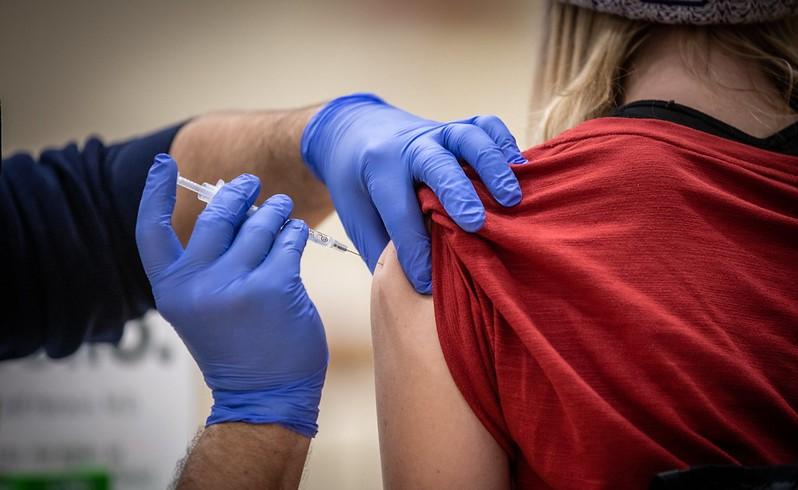A new analysis of 21 polls conducted before and after the COVID-19 pandemic shows parents are changing how they think about school vaccination mandates, but not about vaccine safety.
The nuanced findings are published in Heath Affairs, and they bring to light the complicated relationship between COVID-19 vaccines, parental choice, and public health. Study author Gillian SteelFisher, PhD, of the Harvard T.H. Chan School of Public Health, told CIDRAP News the study shows that the top-level media narrative that the pandemic increased vaccine hesitancy in America is false.
"The good news is that the perception of safety and efficacy around child vaccinations has not dropped; in fact, it has increased," SteelFisher said. "The public saw the COVID-19 vaccines as totally new vaccines, and they drew comparisons to past vaccines, which then seemed very safe and effective."
The good news is that the perception of safety and efficacy around child vaccinations has not dropped; in fact, it has increased.
Before the pandemic, polls showed 54% to 61% of Americans believed childhood vaccines are "very safe," and that rose to 70% by the end of 2022, the analysis found.
Mandates, not safety, called into question
The traditional childhood vaccines—those that protect against polio, measles, mumps, rubella, and other illnesses—have been the bedrock of US public health policy, and a vaccine requirement has been standard in public schools for almost half a century.
The polls SteelFisher and co-authors analyzed, which were conducted from 2015 to 2023, showed that support for mandating vaccination for school attendance decreased following the pandemic. But the decrease in support for school mandates was not because there was an increased perception that routine childhood immunizations were unsafe; rather, there was an increased opposition to any sort of vaccine mandate or regulation.
"COVID resulted in much less support for any kind of mandates anywhere," said SteelFisher. "There's a large swath of population concerned about overreach."
And although polls show a minority (40%) of Americans trust public health agencies to provide accurate information about the safety of COVID-19 vaccines for adolescents, a majority (54%) place a great deal of trust in public health agencies to provide information about the safety of routine childhood vaccines.
Parents' rights cited by half of respondents
Polls taken shortly before the 2022-23 school year showed Americans were divided on whether students should be required to have a COVID-19 vaccine to attend public schools, with 47% to 52% of the public opposing such requirements.
That opposition spilled over into opinions on requiring the standard childhood immunizations for public school attendance.
"Public support for these school requirements dropped by 10 to 12 percentage points between 2019 and 2023 (down to only 70 percent to 74 percent support three years into the pandemic)," the authors wrote. "This left about one-quarter of US adults (25 percent to 28 percent) opposed to these vaccine requirements by 2023, which is the highest level of opposition to routine childhood vaccination in recent history."
COVID resulted in much less support for any kind of mandates anywhere.
SteelFisher said it's important to note that required childhood immunizations for school admission is still a well-supported policy across the country. "Lower doesn't mean low," she said. "But we don't want to see support erode further."
Unlike attitudes about vaccine safety, which were bipartisan in nature, the drop in support for school vaccine requirements was partisan, with notable drops among Republicans and those leaning right.
When those who opposed school mandates were asked why, 49% citied "parents' rights" or "parents' choice."
"This result suggests more explicitly that decreased policy support is related to the requirement element of current childhood vaccination policy," the authors wrote.
COVID mandates may cast unintended shadow
SteelFisher said this parents' choice piece is a key to unlocking the future of public health messaging about childhood vaccinations, COVID or otherwise.
"There is the argument a parent has a choice about medical directions for their children, but what about the rights for students to be in a safe space at school?" SteelFisher said. "What about the right to know what percentage of my child's classmates are vaccinated against certain diseases?"
SteelFisher said public health messaging to reach these parents will need to go beyond "vaccines are safe."
Infectious disease expert Michael T. Osterholm, PhD, MPH, said he congratulated SteelFisher on the study, and he believes the work exposes a key turn of events in the childhood immunization landscape.
This is a cautionary tale about how we in public health deliver vaccines.
"No one thought mandating COVID vaccines in and of itself would have an effect on other childhood immunizations," he said. "This is a cautionary tale about how we in public health deliver vaccines."
Osterholm is director of the Center for Infectious Disease Research and Policy at the University of Minnesota, publisher of CIDRAP News.




















